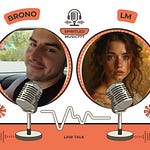When I was twelve, our family moved to Booragoon, settling into a house at 12 Siddons Way. At first glance, the property seemed like an ordinary suburban home, perhaps a touch outdated with its dark wood and shadowy corners. Yet, it exuded an inexplicable chill, as if the very walls breathed secrets. My father, practical and skeptical, noticed strange shrunken skulls perched near the entrance during our first visit. He brushed them off as eccentric ornaments, remnants of a bygone era. It wasn’t until weeks later, when his accountant nervously recounted the house’s dark past—once owned by warlocks and witches—that my father’s unease began to harden into something sharper.
My brother, three years younger and still in the age of night terrors and blanket forts, became my companion in shared horror. The house had a way of coming alive after dusk, the atmosphere thickening, shadows twisting into shapes that mocked logic. Sleep was no sanctuary; it became a game of survival. At night, something unseen would tug at our sheets, bony hands that gripped and pulled, attempting to draw us under the bed where only darkness thrived. I can still remember the low whispers, as if ancient tongues were arguing over who would claim us first.
Despite the terror that seeped into our bones, I was at that in-between age—no longer a child, not yet a teen. The allure of the macabre began to fascinate me. My thirteenth birthday loomed, and I leaned into the fear that had taken root in our lives. I chose a theme to match the house’s temperament: witches, ghouls, and all that haunted. My friends came dressed in black robes, their laughter a brittle contrast to the oppressive energy of 12 Siddons Way. But even during our celebrations, as we splashed in the pool under the dim orange glow of the yard lights, there were moments where my heart clenched. The water felt heavier, pulling us down as if invisible hands lurked beneath, hungry and patient.
There was the man next door, too—a reclusive figure with a python large enough to twist around a grown man. He watched us from his veranda, eyes glinting like a predator’s in the twilight. His presence was a shadow of its own, as if he, too, belonged to the house’s dark symphony.
The most chilling transformation, however, came over my mother. She had always been fiery, sharp-tongued and quick to anger, but something in her shifted. She became more volatile, as though the house whispered its own rage into her ear. Her emotions turned darker, deeper. She craved attention with a desperation that bordered on madness, and the affair she had nursed in secret seemed to flare into an obsession. We watched her, helpless, as she unraveled, consumed by something that thrived in the echoes of that haunted place.
There were nights I sat in the corner of my room, knees pulled to my chest, eyes locked on the door, waiting. My brother whimpered in his sleep, sometimes calling my name, and I would crawl to his bed, placing a hand on his small back to keep him anchored, to reassure us both that we were still here—still whole. But the house had other plans, its darkness pressing down, always watching, always hungry.
One night, I saw him—a dark man in the shadows, a figure that didn’t belong to the world of the living. His presence was suffocating, pulling the air from my lungs. I changed after that; I could feel it in my bones, a chill that never left. Then, one day as I sat in my room, the silence was broken by a voice so loud it felt as though it came from everywhere at once. “You can have everything if you follow me,” it said.
A shiver raced down my spine, and I asked, “What do you mean?” The voice responded, “You can have fortune and fame.” I laughed, a hollow, disbelieving sound. It felt like a scene from a clichéd horror movie.
“No,” I whispered, my voice trembling but defiant. “I love God.” The shadows seemed to recoil, shifting as though they resented my answer, but they did not speak again that night
.













Share this post